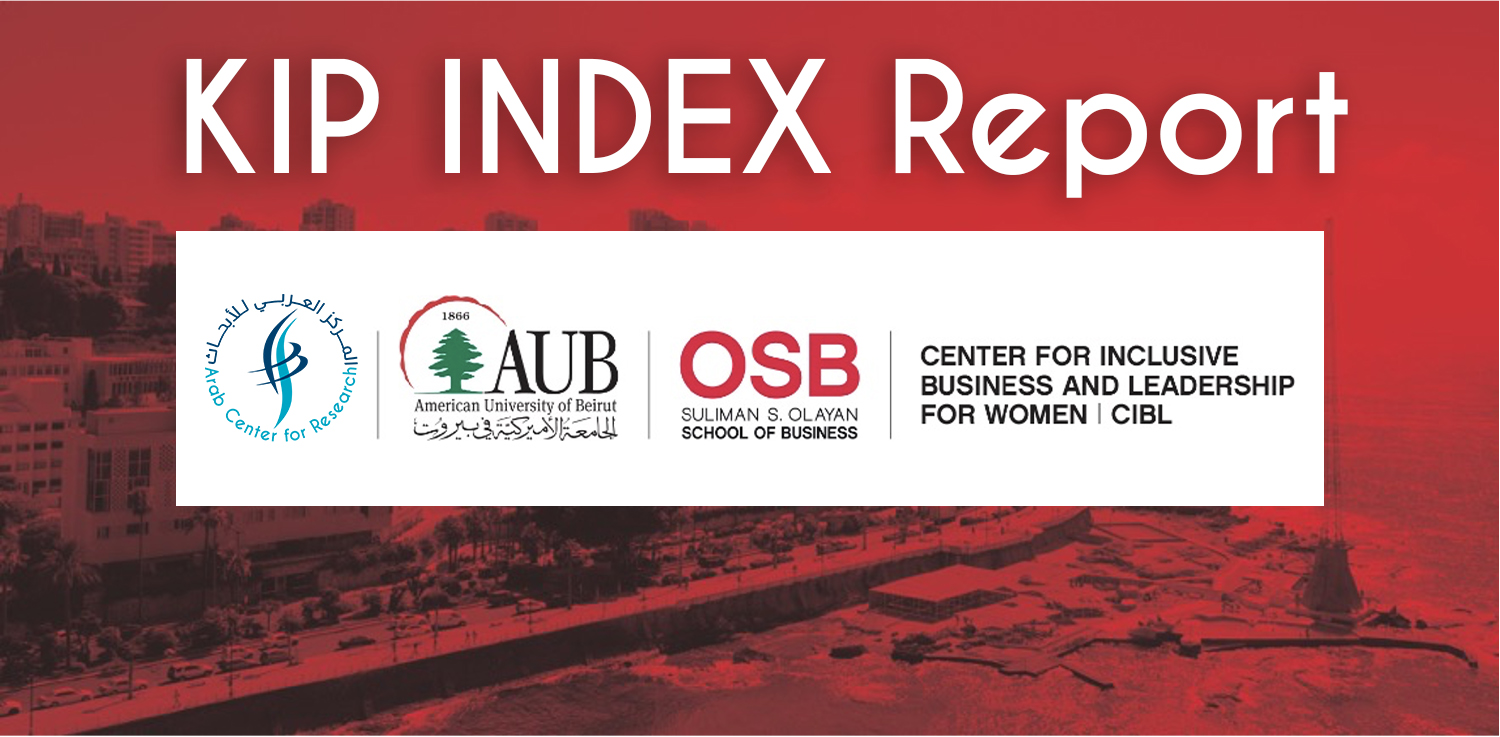
On the 29th December 2020, the Arab Center of Research in Rabat held an online workshop to serve the primary goal of sharing and discussing the findings of the first iteration of the preliminary results of the KIP (Knowledge Is Power) Index's RECOMMENDATIONS AND INSIGHTS: Improving women’s PROMOTION AND RETENTION, RECRUITMENT in the workplace in Morocco.
The workshop started at 3p with a welcoming note from Dr. Nouh El Harmouzi, the director of the Arab Center for Research, and a keynote speech in which he highlighted first that the study was the fruit of a partnership between the American University of Beirut, the Center for Inclusive Business and Leadership (CIBL) and the Arab Center of Research. Second, he gave a general overview on the KIP index which is a pilot index to study the disparities between genders in the workplace in the Arab world. The index is the first indigenous organizational-level measure of the recruitment, retention and promotion of women in formal sector across the MENA region. Such study is meant to highlight human resources practices. Mr. El Harmouzi then shared the methodology that consisted of direct collection of data mainly through interviews and focus groups and concluded with an acknowledgment of the great work done by the team – particularly Kathya Kenza Berrada (senior project manager) Amine Soumaa (IT and coordination) at the center and at last he yielded the floor to Pr. Ikram Adnan, a professor at Ibn Zohr University and a well-established researcher and expert in the field of Gender studies.
Dr. Adnani started off with a warm thank you, then moved straightforward to sharing the following major ideas: the topic of women and related topics have always been an intellectual concern that started when she was studying at university and eventually became the project, she is currently immersed in working on as part of her job as a political sciences professor at Ibn Zohr University. Her primary focus is the study of women’s political participation and integration as part of her specialty. She stressed out that women’s vital role in their societies is at the heart of achieving any type of development and progress. Indeed, what could be observed is that researches and studies on the topic of bettering and improving women’s situation on different levels have increased and the advocacy for women’s rights have increased with the increase of center, social institutions as well as associations. Pr. Adnani also highlighted that the fight and constant battle of women to better their lives and situations have definitely changed in many countries across the MENA region, with variant degrees across countries due to various obstacles be it political, social, economic, and cultural. The encouragement and acknowledgments of women’s rights such as voting, election and access to political positions amongst others influenced the improvement of the different aspects of their lives. As last points, Pr. Adnani presented a general overview on women’s political participation in Morocco and the change that took place in this regard and then yielded the floor to Mrs. Tlaytmass to present the final part of the presentation.
Mrs. Tlaytmass Saou, a translator and a research assistant at the Arab Center for Research, presented the part related to results and recommendations as follow: for each of these three aspects: RECRUITMENT, RETENTION and PROMOTION, she presented the results and major recommendations. These recommendations as reiterated by the whole team are meant to present a roadmap for HR managers and professionals concerned with this study to help them have more inclusive, encouraging fair policies and practices that are meant to ensure women’s participation, involvement, and contribution away from gender but rather competencies and capabilities. Some of the major recommendations, to mention but a few, included creating a clear system and policy for recruitment, providing facilitations for women to make it easy for them to strike a balance between personal and professional life, sexual harassment prevention policies such as trainings and collaborations with institutions fighting such a phenomenon.
As a closing remark to bring the workshop to an end, Mr. Amine Soumaa, as a communication coordinator at the Arab center for Research, thanked all the presenters in the workshop and announced that the full report will be sent to all the participants in the workshop. He also seized the opportunity to thank the team at American University in Beirut will be leading a campaign through they will be sharing the results of the overall study, then eventually invited the audience to share their questions and comments and to get in touch with center if there any who are interested in collaborating in future projects & sharing suggestions.